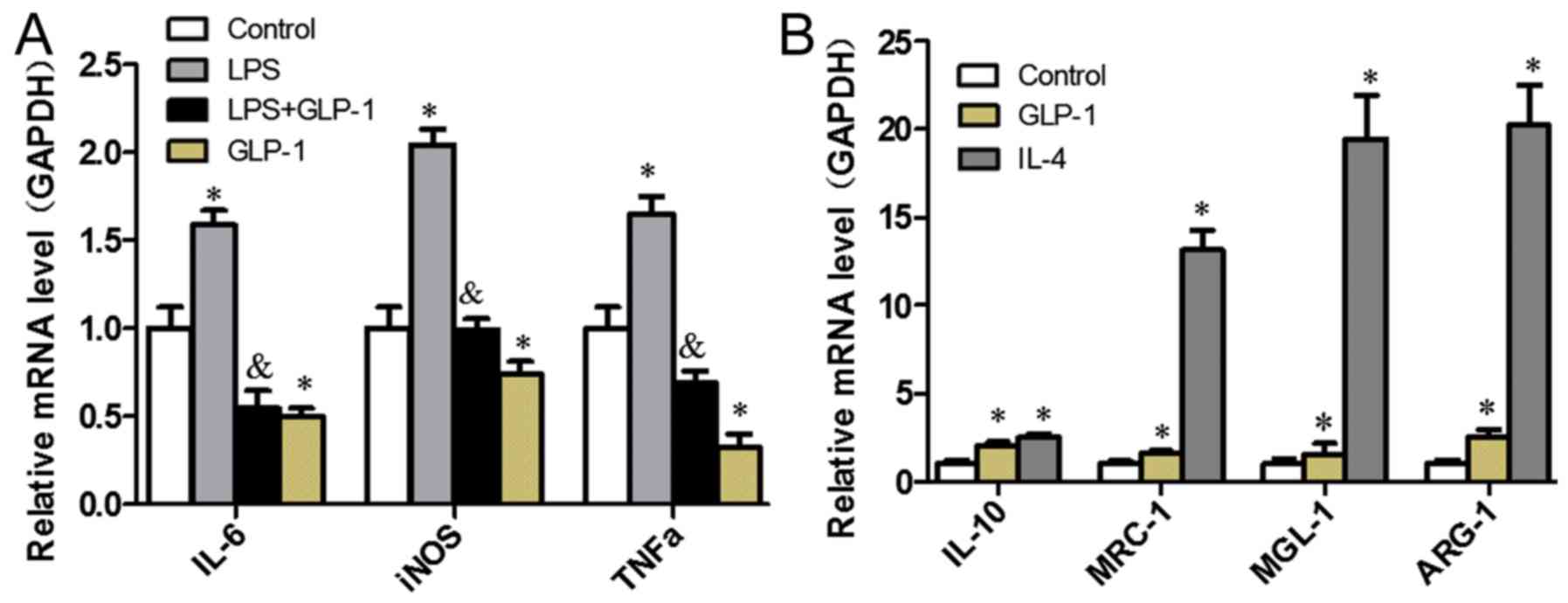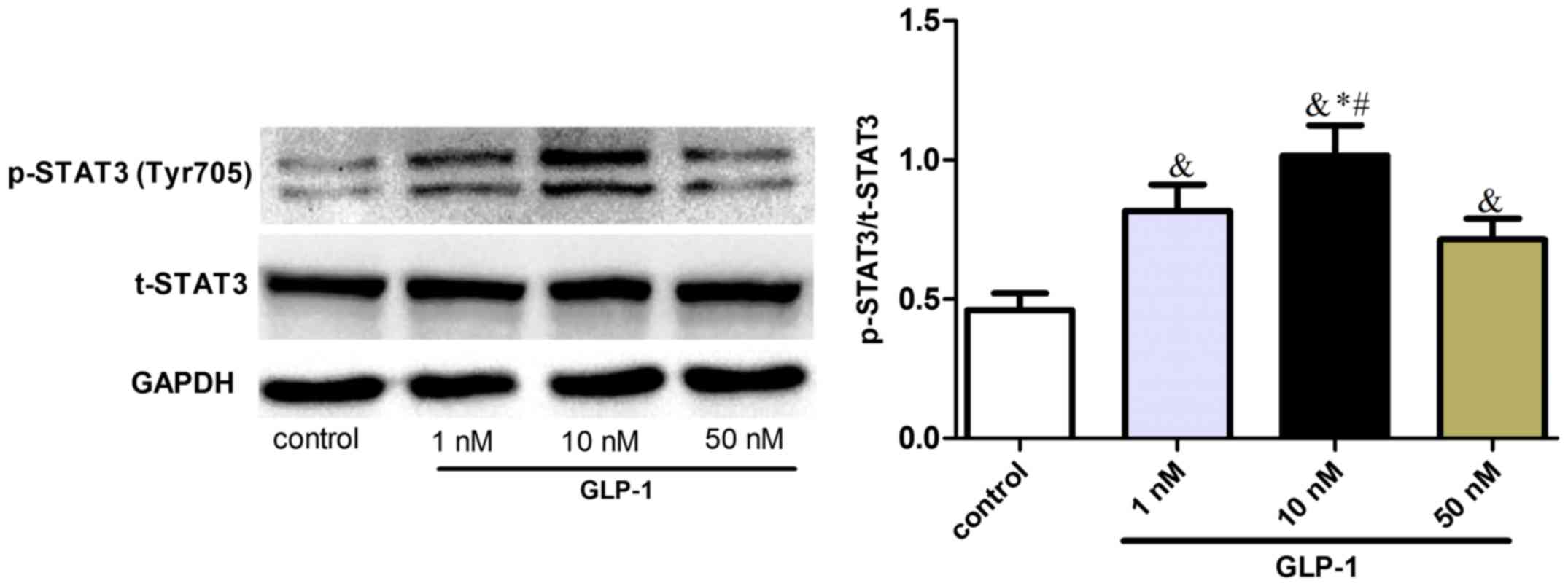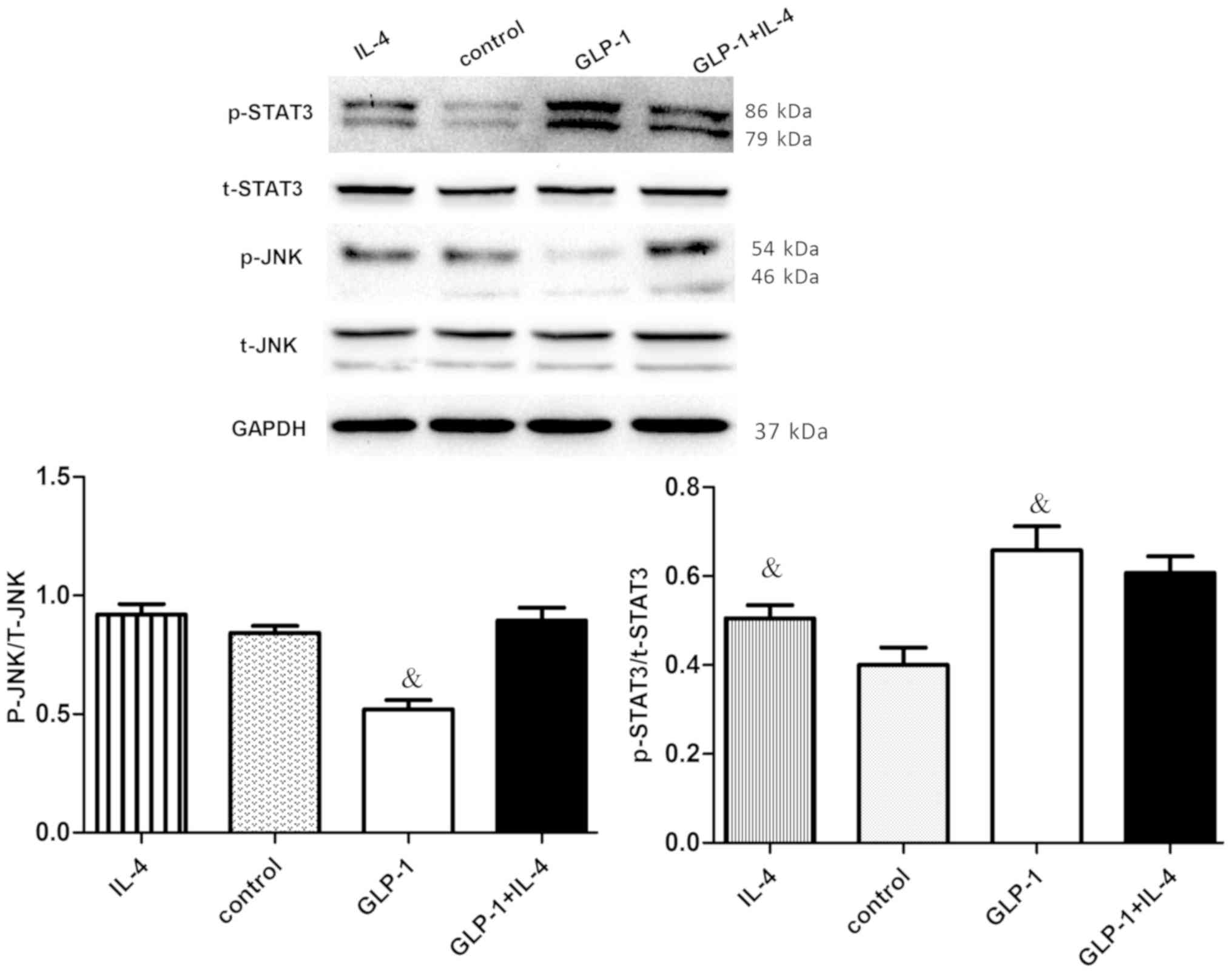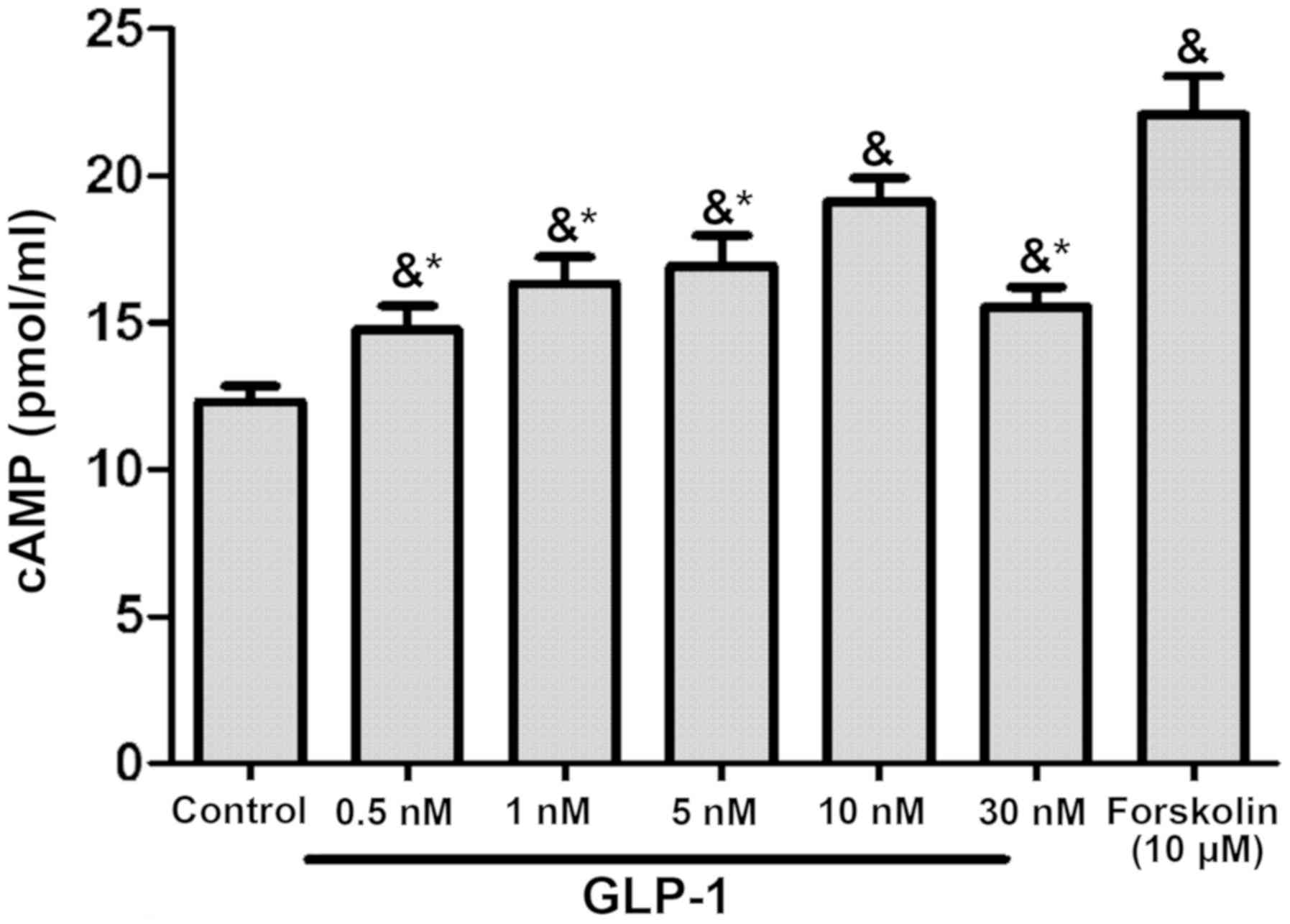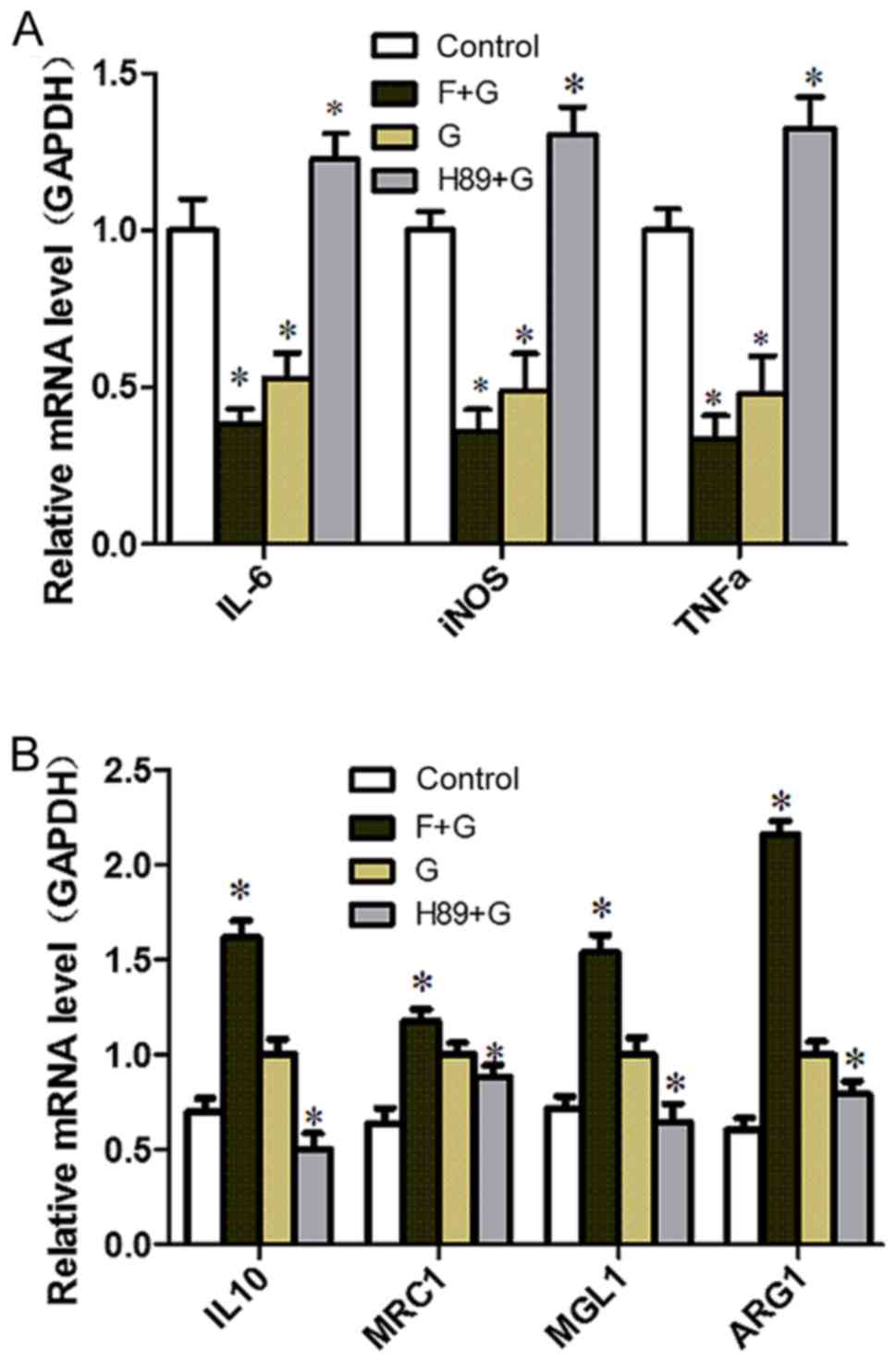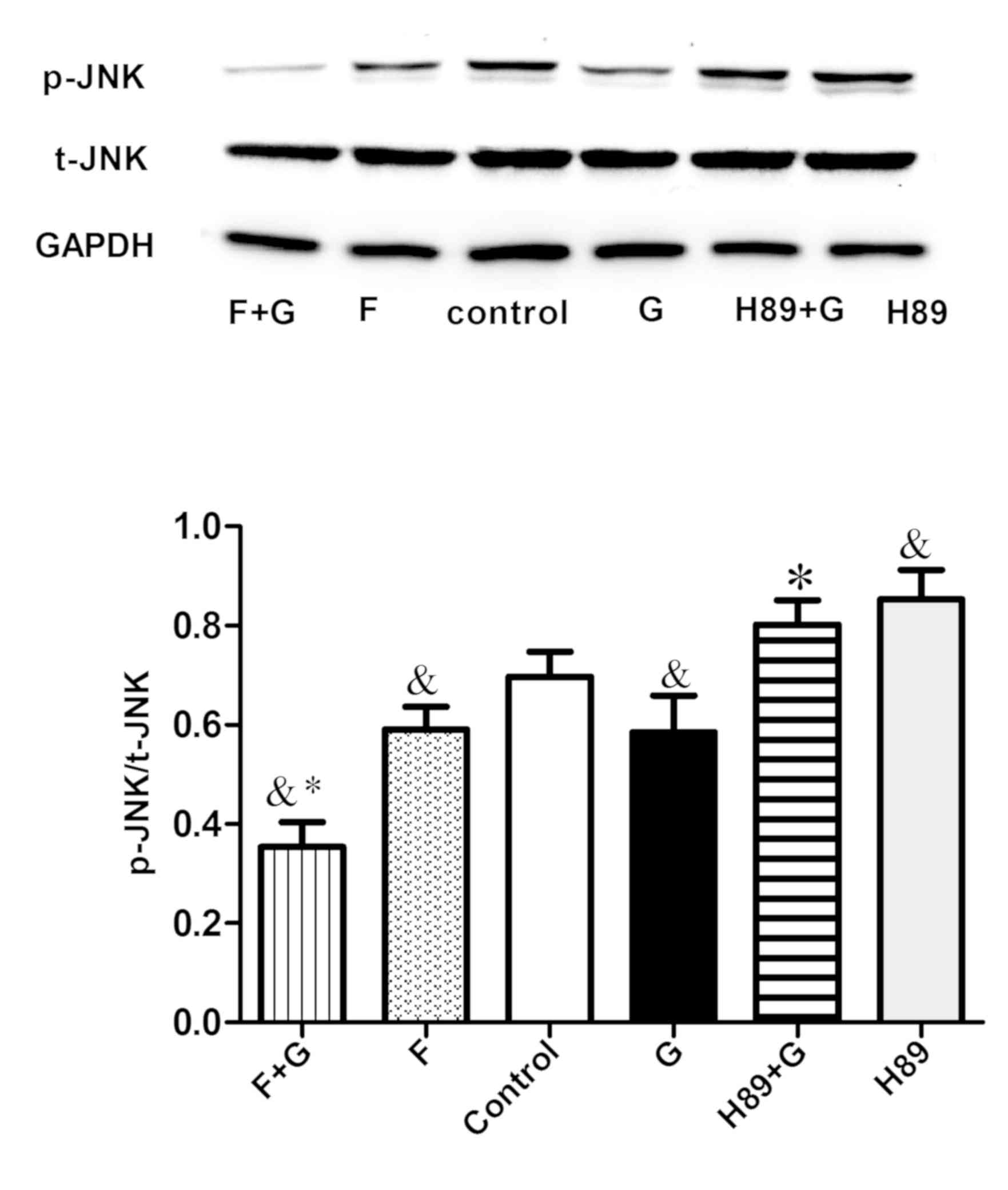|
1
|
Gregor MF and Hotamisligil GS:
Inflammatory mechanisms in obesity. Annu Rev Immunol. 29:415–445.
2011. View Article : Google Scholar : PubMed/NCBI
|
|
2
|
Aroor AR, McKarns S, Demarco VG, Jia G and
Sowers JR: Maladaptive immune and inflammatory pathways lead to
cardiovascular insulin resistance. Metabolism. 62:1543–1552. 2013.
View Article : Google Scholar : PubMed/NCBI
|
|
3
|
Sica A and Mantovani A: Macrophage
plasticity and polarization: In vivo veritas. J Clin Invest.
122:787–795. 2012. View
Article : Google Scholar : PubMed/NCBI
|
|
4
|
Goerdt S and Orfanos CE: Other functions,
other genes: Alternative activation of antigen-presenting cells.
Immunity. 10:137–142. 1999. View Article : Google Scholar : PubMed/NCBI
|
|
5
|
Nathan C and Ding A: Nonresolving
inflammation. Cell. 140:871–882. 2010. View Article : Google Scholar : PubMed/NCBI
|
|
6
|
Gordon S and Taylor PR: Monocyte and
macrophage heterogeneity. Nat Rev Immunol. 5:953–964. 2005.
View Article : Google Scholar : PubMed/NCBI
|
|
7
|
Mantovani A, Sica A, Sozzani S, Allavena
P, Vecchi A and Locati M: The chemokine system in diverse forms of
macrophage activation and polarization. Trends Immunol. 25:677–686.
2004. View Article : Google Scholar : PubMed/NCBI
|
|
8
|
Dall'Asta M, Derlindati E, Ardigò D,
Zavaroni I, Brighenti F and Del Rio D: Macrophage polarization: The
answer to the diet/inflammation conundrum? Nutr Metab Cardiovasc
Dis. 22:387–392. 2012. View Article : Google Scholar : PubMed/NCBI
|
|
9
|
Odegaard JI and Chawla A: Alternative
macrophage activation and metabolism. Annu Rev Pathol. 6:275–297.
2011. View Article : Google Scholar : PubMed/NCBI
|
|
10
|
Yabe D and Seino Y: Two incretin hormones
GLP-1 and GIP: Comparison of their actions in insulin secretion and
beta cell preservation. Prog Biophys Mol Biol. 107:248–256. 2011.
View Article : Google Scholar : PubMed/NCBI
|
|
11
|
Friedrichsen BN, Neubauer N, Lee YC, Gram
VK, Blume N, Petersen JS, Nielsen JH and Møldrup A: Stimulation of
pancreatic beta-cell replication by incretins involves
transcriptional induction of cyclin D1 via multiple signalling
pathways. J Endocrinol. 188:481–492. 2006. View Article : Google Scholar : PubMed/NCBI
|
|
12
|
Drucker DJ: The biology of incretin
hormones. Cell Metab. 3:153–165. 2006. View Article : Google Scholar : PubMed/NCBI
|
|
13
|
Arakawa M, Mita T, Azuma K, Ebato C, Goto
H, Nomiyama T, Fujitani Y, Hirose T, Kawamori R and Watada H:
Inhibition of monocyte adhesion to endothelial cells and
attenuation of atherosclerotic lesion by a glucagon-like peptide-1
receptor agonist, exendin-4. Diabetes. 59:1030–1037. 2010.
View Article : Google Scholar : PubMed/NCBI
|
|
14
|
Li L, Yang G, Li Q, Tan X, Liu H, Tang Y
and Boden G: Exenatide prevents fat-induced insulin resistance and
raises adiponectin expression and plasma levels. Diabetes Obes
Metab. 10:921–930. 2008. View Article : Google Scholar : PubMed/NCBI
|
|
15
|
Lee YS, Park MS, Choung JS, Kim SS, Oh HH,
Choi CS, Ha SY, Kang Y, Kim Y and Jun HS: Glucagon-like peptide-1
inhibits adipose tissue macrophage infiltration and inflammation in
an obese mouse model of diabetes. Diabetologia. 55:2456–2468. 2012.
View Article : Google Scholar : PubMed/NCBI
|
|
16
|
Shiraishi D, Fujiwara Y, Komohara Y,
Mizuta H and Takeya M: Glucagon-like peptide-1 (GLP-1) induces M2
polarization of human macrophages via STAT3 activation. Biochem
Biophys Res Commun. 425:304–308. 2012. View Article : Google Scholar : PubMed/NCBI
|
|
17
|
Takaishi K, Komohara Y, Tashiro H, Ohtake
H, Nakagawa T, Katabuchi H and Takeya M: Involvement of
M2-polarized macrophages in the ascites from advanced epithelial
ovarian carcinoma in tumor progression via Stat3 activation. Cancer
Sci. 101:2128–2136. 2010. View Article : Google Scholar : PubMed/NCBI
|
|
18
|
Yu H, Pardoll D and Jove R: STATs in
cancer inflammation and immunity: A leading role for STAT3. Nat Rev
Cancer. 9:798–809. 2009. View
Article : Google Scholar : PubMed/NCBI
|
|
19
|
Williams L, Bradley L, Smith A and Foxwell
B: Signal transducer and activator of transcription 3 is the
dominant mediator of the anti-inflammatory effects of IL-10 in
human macrophages. J Immunol. 172:567–576. 2003. View Article : Google Scholar
|
|
20
|
Serezani CH, Ballinger MN, Aronoff DM and
Peters-Golden M: Cyclic AMP: Master regulator of innate immune cell
function. Am J Respir Cell Mol Biol. 39:127–132. 2008. View Article : Google Scholar : PubMed/NCBI
|
|
21
|
Mustafa SB and Olson MS: Expression of
nitric-oxide synthase in rat Kupffer cells is regulated by cAMP. J
Biol Chem. 273:5073–5080. 1998. View Article : Google Scholar : PubMed/NCBI
|
|
22
|
Chang SY, Kim DB, Ryu GR, Ko SH, Jeong IK,
Ahn YB, Jo YH and Kim MJ: Exendin-4 inhibits iNOS expression at the
protein level in LPS-stimulated Raw264.7 macrophage by the
activation of cAMP/PKA pathway. J Cell Biochem. 114:844–853. 2013.
View Article : Google Scholar : PubMed/NCBI
|
|
23
|
Livak KJ and Schmittgen TD: Analysis of
relative gene expression data using real-time quantitative PCR and
the 2(-Delta Delta C(T)) method. Methods. 25:402–408. 2001.
View Article : Google Scholar : PubMed/NCBI
|
|
24
|
Weisberg SP, McCann D, Desai M, Rosenbaum
M, Leibel RL and Ferrante AW: Obesity is associated with macrophage
accumulation in adipose tissue. J Clin Invest. 112:1796–1808. 2003.
View Article : Google Scholar : PubMed/NCBI
|
|
25
|
Lumeng CN, Bodzin JL and Saltiel AR:
Obesity induces a phenotypic switch in adipose tissue macrophage
polarization. J Clin Invest. 117:175–184. 2007. View Article : Google Scholar : PubMed/NCBI
|
|
26
|
Odegaard JI and Chawla A: Mechanisms of
macrophage activation in obesity-induced insulin resistance. Nat
Clin Pract Endocrinol Metab. 4:619–626. 2008. View Article : Google Scholar : PubMed/NCBI
|
|
27
|
Zhang X, Xu A, Chung SK, Cresser JH,
Sweeney G, Wong RL, Lin A and Lam KS: Selective inactivation of
c-Jun NH2-terminal kinase in adipose tissue protects against
diet-induced obesity and improves insulin sensitivity in both liver
and skeletal muscle in mice. Diabetes. 60:486–495. 2011. View Article : Google Scholar : PubMed/NCBI
|
|
28
|
Han MS, Jung DY, Morel C, Lakhani SA, Kim
JK, Flavell RA and Davis RJ: JNK expression by macrophages promotes
obesity-induced insulin resistance and inflammation. Science.
339:218–222. 2013. View Article : Google Scholar : PubMed/NCBI
|
|
29
|
Lim CP and Cao X: Serine phosphorylation
and negative regulation of Stat3 by JNK. J Biol Chem.
274:31055–31061. 1999. View Article : Google Scholar : PubMed/NCBI
|
|
30
|
Li SN, Wang W, Fu SP, Wang JF, Liu HM, Xie
SS, Liu BR, Li Y, Lv QK, Li ZQ, et al: IL-21 Modulates release of
proinflammatory cytokines in LPS-stimulated macrophages through
distinct signaling pathways. Mediators Inflamm. 2013:5480732013.
View Article : Google Scholar : PubMed/NCBI
|
|
31
|
Matsukawa A, Kudo S, Maeda T, Numata K,
Watanabe H, Takeda K, Akira S and Ito T: Stat3 in resident
macrophages as a repressor protein of inflammatory response. J
Immunol. 175:3354–3359. 2005. View Article : Google Scholar : PubMed/NCBI
|
|
32
|
Gaba A, Grivennikov SI, Do MV, Stumpo DJ,
Blackshear PJ and Karin M: IL-10-mediated tristetraprolin induction
is part of a feedback loop that controls Macrophage STAT3
activation and cytokine production. J Immunol. 189:2089–2093. 2012.
View Article : Google Scholar : PubMed/NCBI
|
|
33
|
Makranz C, Cohen G, Reichert F, Kodama T
and Rotshenker S: cAMP cascade (PKA, Epac, adenylyl cyclase, Gi,
and phosphodiesterases) regulates myelin phagocytosis mediated by
complement receptor-3 and scavenger receptor-AI/II in microglia and
macrophages. Glia. 53:441–448. 2006. View Article : Google Scholar : PubMed/NCBI
|
|
34
|
Ferdaoussi M, Abdelli S, Yang JY, Cornu M,
Niederhauser G, Favre D, Widmann C, Regazzi R, Thorens B, Waeber G
and Abderrahmani A: Exendin-4 protects beta-cells from
interleukin-1 beta-induced apoptosis by interfering with the c-Jun
NH2-terminal kinase pathway. Diabetes. 57:1205–1215. 2008.
View Article : Google Scholar : PubMed/NCBI
|
|
35
|
Gordon S: Alternative activation of
macrophages. Nat Rev Immunol. 3:23–35. 2003. View Article : Google Scholar : PubMed/NCBI
|















